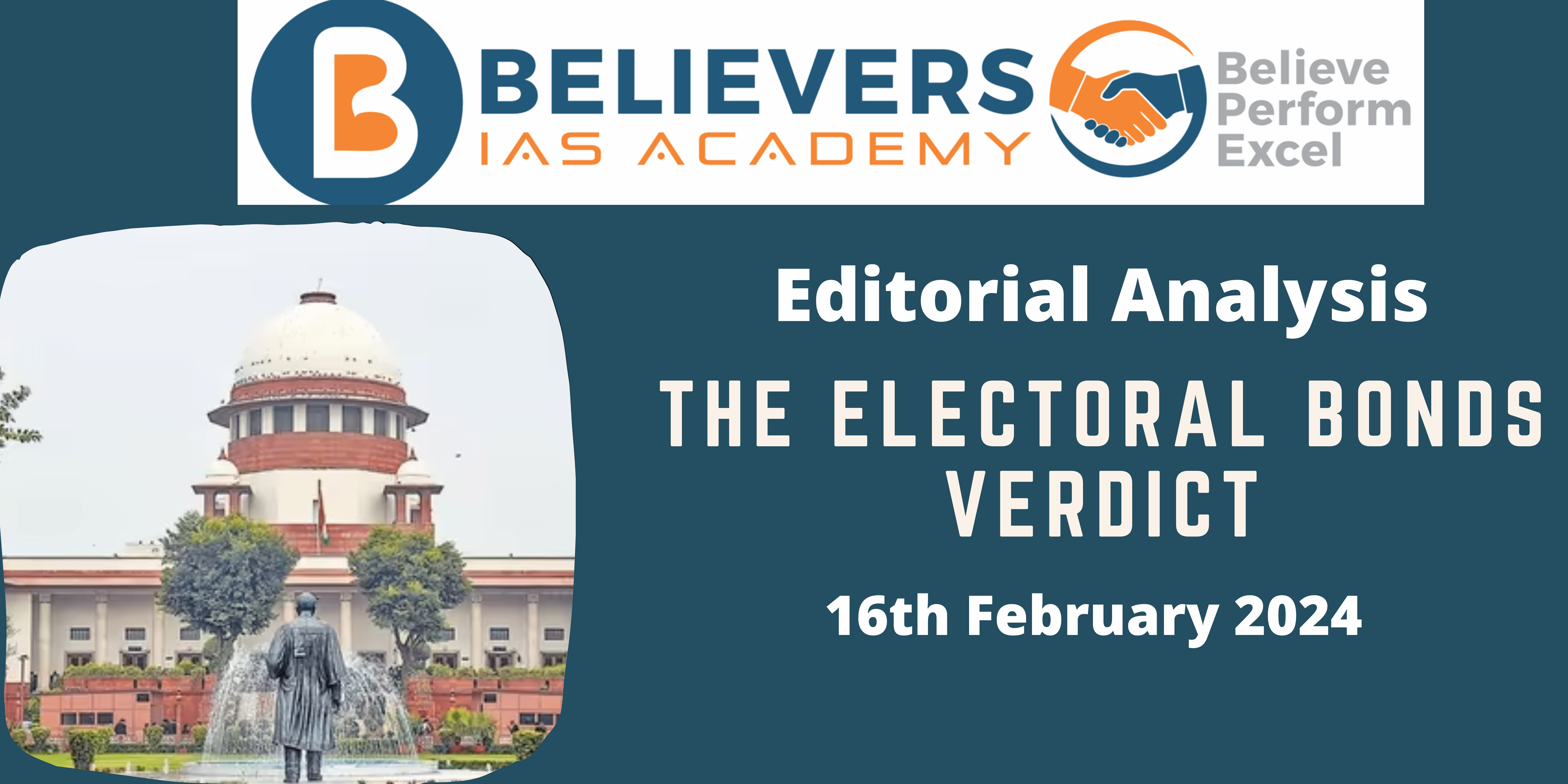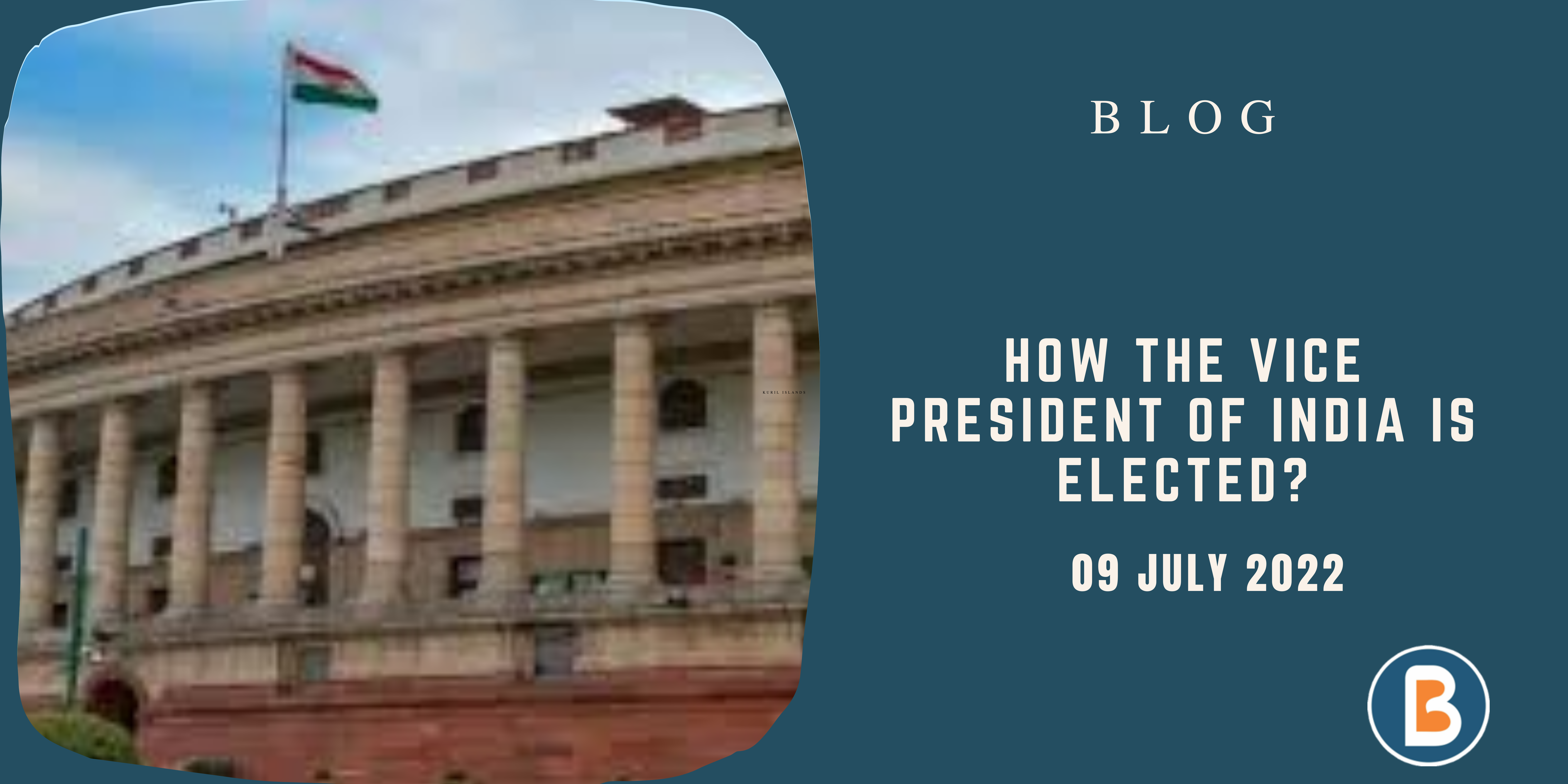The electoral bonds verdict
Context:
The Supreme Court of India has struck down the Electoral Bond Scheme (EBS), emphasizing the importance of transparency in political funding.
Relevance:
GS-02 GS-03 (Government policies and interventions, Economy)
Mains Question:
Evaluate the implications of the judgment on the regulation of political funding and the role of the judiciary in promoting democratic values and accountability. (250 words)
Key Highlights:
- The Court found the scheme violative of the Constitution, particularly voters’ right to information, and deemed it manifestly arbitrary.
- The judgment is in line with previous verdicts aimed at promoting voter rights and preserving the integrity of elections.
- The Court’s reasoning emphasizes the need to curb the influence of ‘black money’ in politics and prevent undue influence from corporate donors.
Electoral Bonds:
- The electoral bonds system was established in 2017 via a Finance bill, becoming operational in 2018.
- It provides a mechanism for individuals and entities to contribute funds to registered political parties while safeguarding the anonymity of the donor.
- Key Features:
- It is issued by the State Bank of India (SBI) in denominations ranging from Rs 1,000 to Rs 1 crore.
- It is Interest-free and payable to the bearer on demand.
- Available for purchase by Indian citizens or entities domiciled in India, either individually or jointly.
- Validity period of 15 calendar days from the date of issue.
- SBI exclusively serves as the authorized issuer, distributing electoral bonds through designated branches.
- Eligibility Criteria for Political Parties:
- Only political parties registered under Section 29A of the Representation of the People Act, 1951, and securing at least 1% of the votes polled in the preceding general election to the House of the People or the Legislative Assembly, qualify to receive electoral bonds.
- Purchase and Redemption Process:
- Electoral Bonds can be acquired digitally or through cheque payments.
- Redemption is permissible solely through the political party’s authorized bank account.
- Transparency and Accountability Measures:
- Political parties are mandated to disclose their bank accounts to the Election Commission of India (ECI).
- Donations are routed through formal banking channels, ensuring transparency in the contribution process.
- Parties are obligated to elucidate the utilization of funds received from electoral bonds.
- Benefits:
- Promotes transparency in political party funding by facilitating disclosure.
- Enhances accountability by necessitating explanations regarding the allocation of donated funds.
- Discourages cash transactions, fostering a more transparent financial ecosystem.
- Safeguards the anonymity of donors, encouraging wider participation in the democratic process.
Dimensions of the Article:
- Electoral Bond Scheme (EBS):
- Constitutional Violations and Arbitrary Amendments
- Upholding Voter Rights and Election Integrity
Electoral Bond Scheme (EBS):
- The recent verdict by the Supreme Court striking down the Electoral Bond Scheme (EBS) marks a significant development in the realm of political funding in India.
- The EBS allowed anonymous donations of high value to political parties, thereby raising concerns about transparency and accountability in the electoral process.
- By nullifying the scheme, the Court has underscored the importance of transparency in political financing.
Constitutional Violations and Arbitrary Amendments:
- The Court’s decision to declare the EBS unconstitutional stems from its recognition of the scheme’s infringement upon voters’ right to information.
- Additionally, the removal of the cap on corporate donations without the requirement for disclosure further exacerbated the lack of transparency in political funding.
- Such arbitrary amendments to the Companies Act were deemed manifestly arbitrary and incompatible with democratic principles.
Upholding Voter Rights and Election Integrity:
- This judgment is part of a broader effort by the Court to safeguard voter rights, that upholds the integrity of elections.
- Previous interventions, such as introducing the ‘None of the Above’ option on the ballot and mandating disclosure of candidates’ assets and criminal antecedents, reflect the judiciary’s commitment to ensuring fair and transparent elections.
Curbing the Influence of ‘Black Money’:
- One of the primary objectives of the EBS was to curb the influence of ‘black money’ in politics by promoting donations through banking channels.
- However, the Court found this justification lacking in proportionality, as it failed to adequately address voters’ right to information.
- The connection between unidentified corporate donations and potential policy favoritism underscores the need for greater transparency in political financing.
Way Forward:
- Ensuring Transparent Political Funding: It is imperative for policymakers to devise alternative mechanisms for political funding that prioritize transparency and accountability. Measures such as mandatory disclosure of donation details and stricter regulations on corporate contributions can help enhance transparency in political financing.
- Judicial Oversight and Accountability: The Supreme Court’s role in upholding democratic principles and ensuring accountability in governance through landmark judgments cannot be overstated. However, the timely adjudication of cases related to electoral reforms, such as the validity of the Electoral Bond Scheme, is crucial to preventing undue influence on policy decisions.
Conclusion:
The Supreme Court’s decision to strike down the Electoral Bond Scheme reaffirms its commitment to preserving the integrity of the electoral process and upholding democratic values. By prioritizing transparency and accountability in political financing, the judiciary plays a pivotal role in safeguarding the rights of voters and promoting fair and transparent elections.




